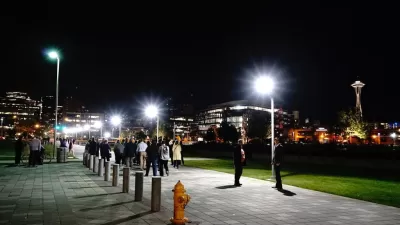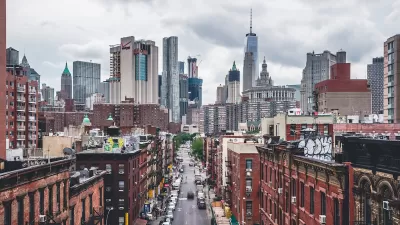Cities face challenges associated with rising values, an influx of more educated residents, and gentrification. Here's what cities can do.
In the latter half of the 20th Century, historic cities and towns in the United States were dying. That brought disinvestment, declining values, rising poverty, and crime. The one silver lining was cheap land and low housing costs.
Since about 2000, the demand for living and working in cities built prior to World War II has skyrocketed. Investment and values are rising and crime is down. But cities now face the problems of success.
In a recent public meeting, a woman asked how Ithaca, New York—my small city—can remain affordable to long-time residents. Ithaca is not Brooklyn or San Francisco, but it has many of the qualities in demand today: Walkability, mixed-use, historic architecture, and abundant culture. Values are rising. The same question is being asked again and again in cities across America.
There is no silver bullet—but there is a box of effective tools.
FULL STORY: The problems of success in the new urban era

Maui's Vacation Rental Debate Turns Ugly
Verbal attacks, misinformation campaigns and fistfights plague a high-stakes debate to convert thousands of vacation rentals into long-term housing.

Planetizen Federal Action Tracker
A weekly monitor of how Trump’s orders and actions are impacting planners and planning in America.

In Urban Planning, AI Prompting Could be the New Design Thinking
Creativity has long been key to great urban design. What if we see AI as our new creative partner?

King County Supportive Housing Program Offers Hope for Unhoused Residents
The county is taking a ‘Housing First’ approach that prioritizes getting people into housing, then offering wraparound supportive services.

Researchers Use AI to Get Clearer Picture of US Housing
Analysts are using artificial intelligence to supercharge their research by allowing them to comb through data faster. Though these AI tools can be error prone, they save time and housing researchers are optimistic about the future.

Making Shared Micromobility More Inclusive
Cities and shared mobility system operators can do more to include people with disabilities in planning and operations, per a new report.
Urban Design for Planners 1: Software Tools
This six-course series explores essential urban design concepts using open source software and equips planners with the tools they need to participate fully in the urban design process.
Planning for Universal Design
Learn the tools for implementing Universal Design in planning regulations.
planning NEXT
Appalachian Highlands Housing Partners
Mpact (founded as Rail~Volution)
City of Camden Redevelopment Agency
City of Astoria
City of Portland
City of Laramie





























